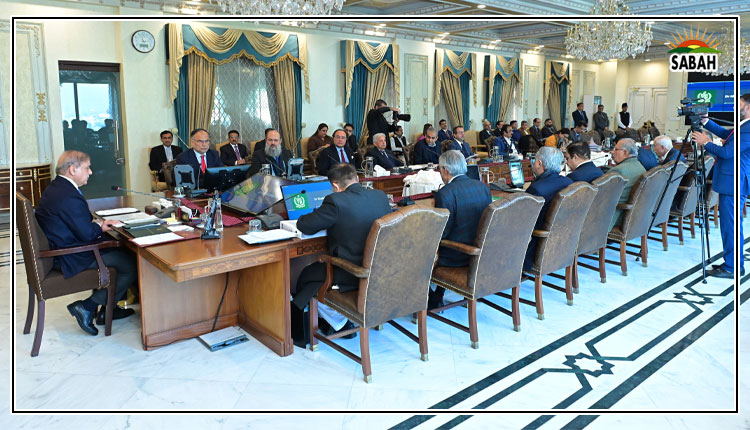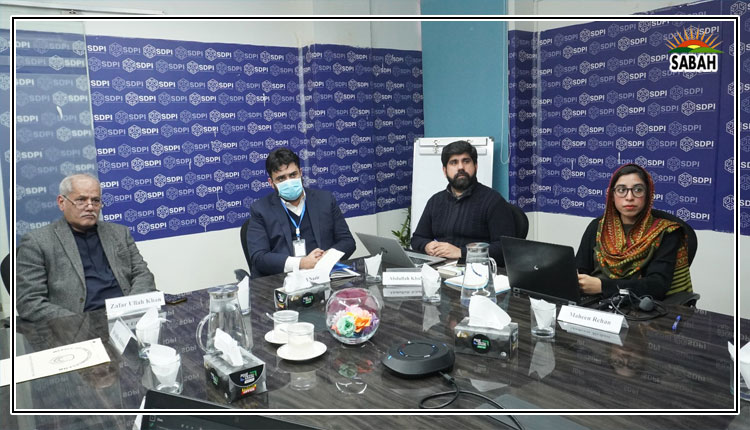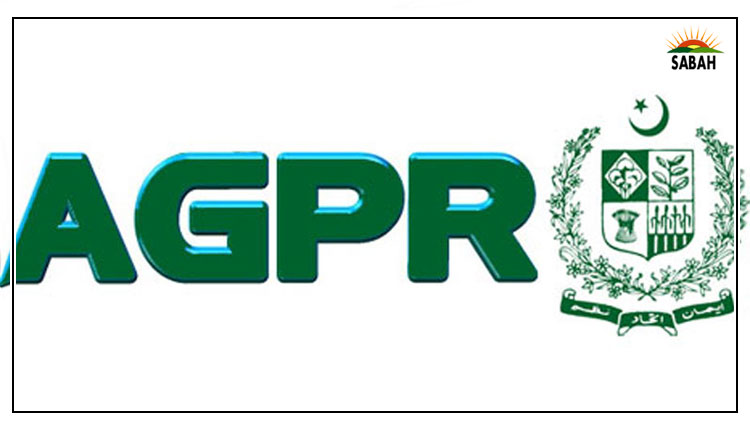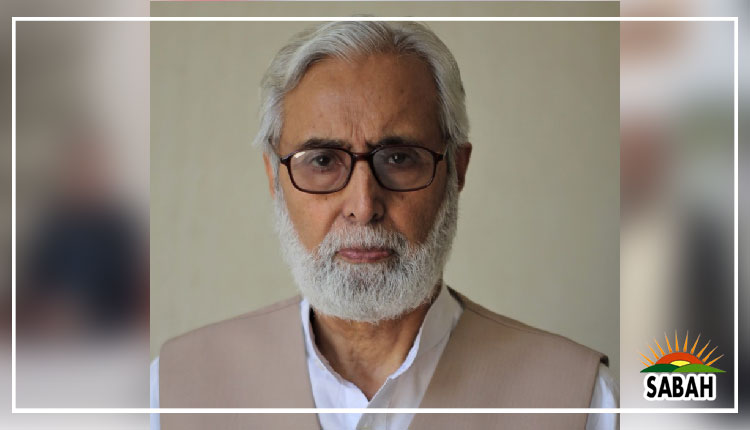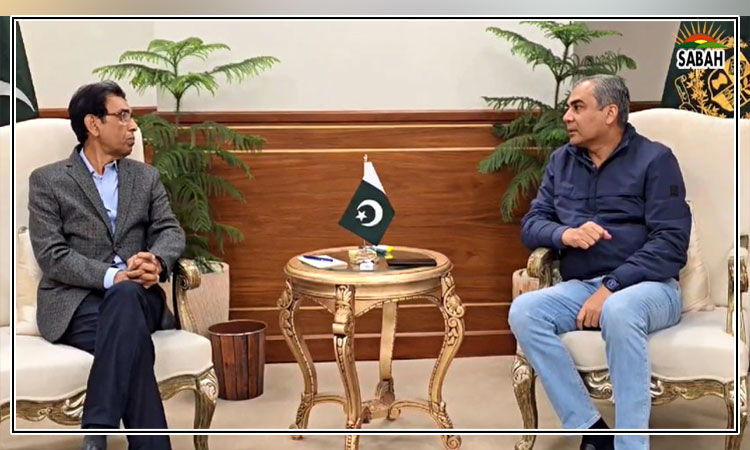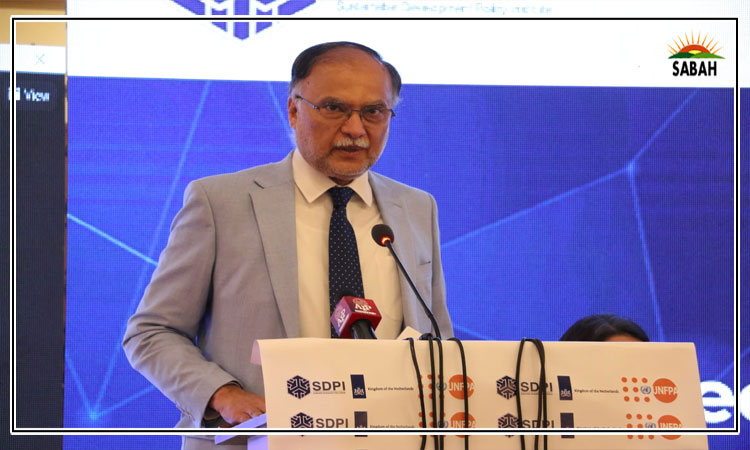Pakistan’s potential to emerge among top 10 largest economies by 2047: Prof Ahsan Iqbal
ISLAMABAD, July 29 (SABAH): Minister for Planning, Development and Special Initiatives, Prof Dr Ahsan Iqbal on Monday said Pakistan has the potential to emerge among the top 10-15 largest economies of the world by 2047, which demands continuous struggle of the entire system as a team with continuity of policy.
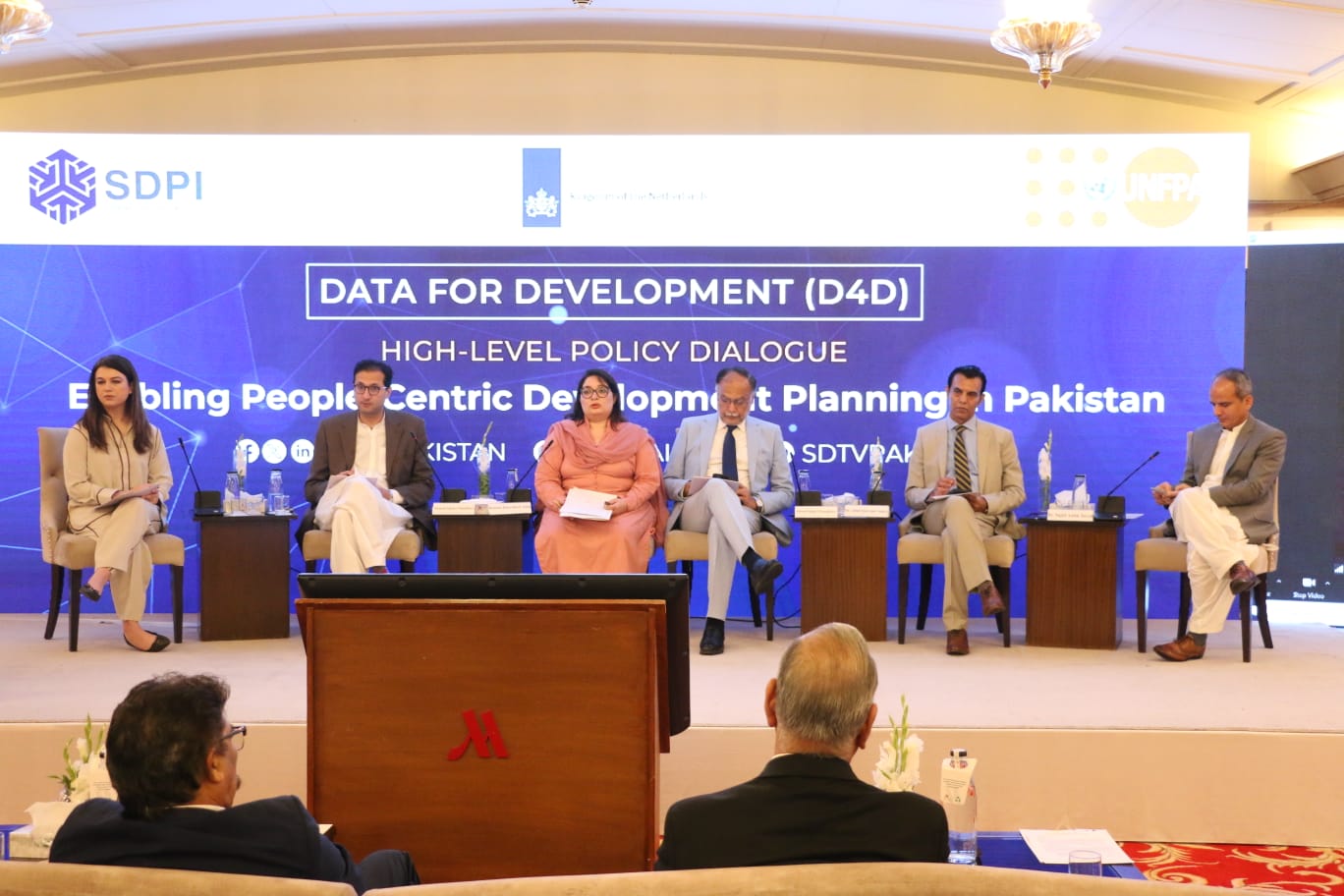
He was addressing as keynote speaker at the Sustainable Development Policy Institute (SDPI) and United National Population Fund (UNFPA) jointly held first-ever Data for Development (D4D) high-level policy dialogue titled “Enabling People-Centric Development Planning in Pakistan”.
He added that data generation, data collection, and data dissemination was imperative to make objective and reliable data accessible to drive the national development agenda.
He extended an invitation to establish a platform which acts as resource center for government to inform policy decision.
Prof Dr Ahsan Iqbal mentioned that evidence-based planning is critical for convincing planning and only possible through data as it is the biggest weapon of development and also a tool to massive destruction.
The Minister said the government would have to control misinformation in the society to contain antistate narrative benefitting country’s enemies.
Dr Ahsan Iqbal urged the forum to develop a resource centre that should serve as a guiding platform to the government for policy making.
Prime Minister’s Coordinator for Climate Change and Environmental Coordination, Romina Khursheed Alam congratulated SDPI and UNFPA for the D4D policy initiative and underscored the importance of collaborations to achieve such goals.
“Data is important for every single step from climate change, disaster risk reduction and SDGs. It can play a pivotal role in the betterment of people and the country. There is need for work at grassroots level which is the basis of change and development,” she added.
Climate change, she said is the most important threat that demands a digital dashboard for a complete unanimous picture accessible to all ministries for better decision making. Moreover , it also requires to ensure credibility through three-tier data sifting mechanism whereas data collection mechanisms once formed demand collaboration with other ministeries, she added.
She underlined that impact of data on children and women also needs to be addressed as during such initiatives as it’s now or never situation for Pakistan due to growing climate vulnerability.
In his welcome remarks, Executive Director, SDPI, Dr Abid Qaiyum Suleri said the D4D is extremely important and commended the UNFPA for collaborative effort with the SDPI.
The D4D dashboard will be developed at the ministry sharing credible data as it will help foresight and simulate future projections helpful in learning large modules, he said.
The SDPI, he said is setting up a high-level steering committee for D4D, and Member Punjab Assembly (MPA) Ahmed Iqbal Chaudhry and Romina Khursheed Alam are it’s members.
Dr Luay Shabaneh, Country Representative UNFPA Pakistan underscored the crucial role of data in driving sustainable development.
He added that Pakistan’s capacity in production, dissemination and analysis of data alongside scaling up other institution’s capacity to deliver needs to be considered.
He added that the discourse in Pakistan shifting from supply-driven to demand-driven is important as global experience show that those governments who believe in data and follow data have substantial increase in improvement of their goverance like in India, China, Bangladesh, Rwanda and others.
MPA Punjab assembly and member to high level steering committee to D4D initiative, Ahmed Iqbal Chaudhry said data challenges are emerging that demands informed evidence whereas the country is facing serious challenges and it demands clear vision and leadership to address those problems.
Data is the key that will be guiding every reform initiatives to be implemented for betterment of the system and governance, he added.
During the panel discussion, Joint Executive Director, SDPI, Dr Vaqar Ahmed while moderating the session said, “We need to learn from advanced economies and study how National Statistics Agencies work closely with thinktanks to promote data driven development and evidence-use in planning and budgeting. This is the only recipe for transitioning towards SDGs.”
Deputy Executive Director, SDPI, Dr Sajid Amin delivered his presentation on D4D. He explained that the initiative is based on promoting and cultivating a data culture in Pakistan with the objective to strengthening ecosystem for datadriven and people centric development planning and policy making.
During the panel discussion, Dr Naeem uz Zafar, Chief Statistician at Pakistan Bureau of Statistics (PBS) said the digital census held had improved the capacities and capabilities of the PBS officials tremendously from basics to the full-scale roll out of the initiative.
Dr Faisal Bari said data registry and availability is crucial for developing data for development that also demands forums for inclusion of masses in data collection.
Chief Economist, Khyber Paktunkhwa (KP) government Arifullah Awan said the KP government has dedicated GIS hub for data on various schemes implemented to certain areas to workout future projections for other areas and population.
However, during the recent budget surveys, the mechanism helped in guiding mainstreaming gender and youth, and right resource implementation at ground level.
The KP government believes in building evidence based on ground realities for planning and development. However, the policy is led by the political hierarchy whereas there should be a collaboration between the public, private partmers, research departments for inclusive initiatives, he added.
Flt Lt (R) Additional Secretary at the Planning Ministry, Kamran Rehman Khan, expressed concern that Pakistan’s rapidly growing population, coupled with dwindling resources, necessitates reliable data to ensure optimal resource allocation and utilization.
In her vote of thanks Dr. Rubina Ali commended the SDPI for initiating of data for development discourse in Pakistan. She added that decision making gets compromised due to personal biases and limited exposure or knowledge which is also a similar risk in data collection.
Dr Rubina Ali added that data inclusivity is critical to ensure voices of all, including the physically challenged and those living in hard to access areas, are included in policy making.




